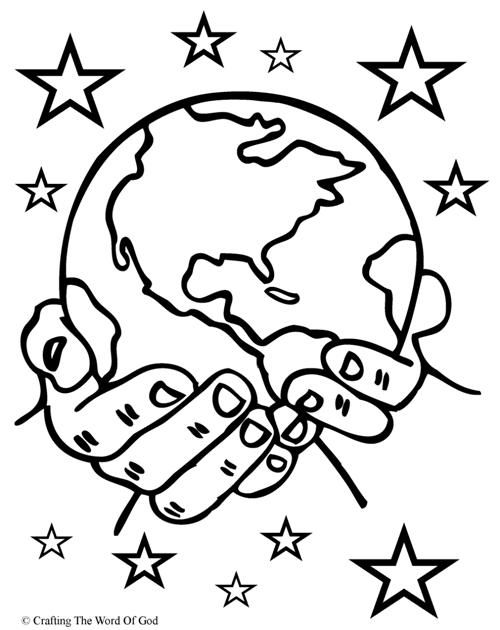To understand creation in its entirety means knowing that God is at the root of it all. As explained in (Catechism of the Catholic Church #232 – 267), God is three distinct persons – Father, Son and Holy Spirit – yet of the same substance. The triune God existed before creation, as God is existence itself. God is the Word. God is goodness. God is the ultimate source of Truth. And all together, God is love.
From this love, and through his wisdom, God – out of nothing — created all that encompasses the universe: matter, motion, material life and, above all – humankind (CCC #295 – 297). But why humankind? Because God wants human beings to share in his goodness – as like God himself, creation is also good (CCC #299).
God also wants us to share in his love, so that we may have a real, fulfilling relationship with him and be part of his divine family. As such, God also created a plan for our eternal connection and grace through him. Referred to as divine providence, God – through the Holy Spirit — revealed his plan through covenants with humanity. These covenants were recorded in Sacred Scripture (CCC #302 – 305).
Yet God also gave human beings the freedom to obey or disobey by his covenants. Humans, as well as angels, decide whether they want to grow an eternal relationship with God, or turn away from him and thereby fall into sin (CCC #307 – 312). Knowing that we could and would take the latter route, starting with original sin, God formed his plan to offer us salvation, through his son, Jesus Christ. And with this plan in motion, we can grow in God’s providence while enjoying the fruits of his creation (CCC #312 – 314).
Throughout my life as a Catholic Christian (putting aside my former “lives” as a Protestant and an atheist), I have often struggled with the phrase, “the mysteries of faith.” In mean, why does there have to be any “mystery” to faith?
But then I remember a lecture on faith I watched some years ago: The speaker (whose name now escapes me!) likened faith to having a relationship, whether that be marriage, with blood relatives, with friends, and so on. That is, to get know someone on a deeper level means building a faith in what you express to each other – that you see truth and goodness in words and actions – which leads to becoming secure in that shared faith.
Yet you can never 100% know your companion; you can never know every single thought that person has, every second of the day. Therefore, the relationship remains a long-term mystery.
Such is the case regarding my relationship with the triune God, our Creator. When I was a kid, I was a late bloomer in my appreciation for math – especially word problems – and I recall that whenever any talk about creation, and our faith in it, came up in Catechism, it reminded me of the word problem, “A train leaves Chicago at 6:00 AM, traveling at 60 MPH…”; or the classic argument between Abbot and Costello about “Who’s on first?”
Fast forward to today: After many years of studying our faith and Tradition from various angles, praying on my understanding about it, and realizing that we too can have faith in a truth, while it remains a mystery, it makes my relationship with God that much richer. And as we meditate on God having created us out of pure goodness and love, I pray that we may continue to grow a wonderfully spiritual relationship with him.
